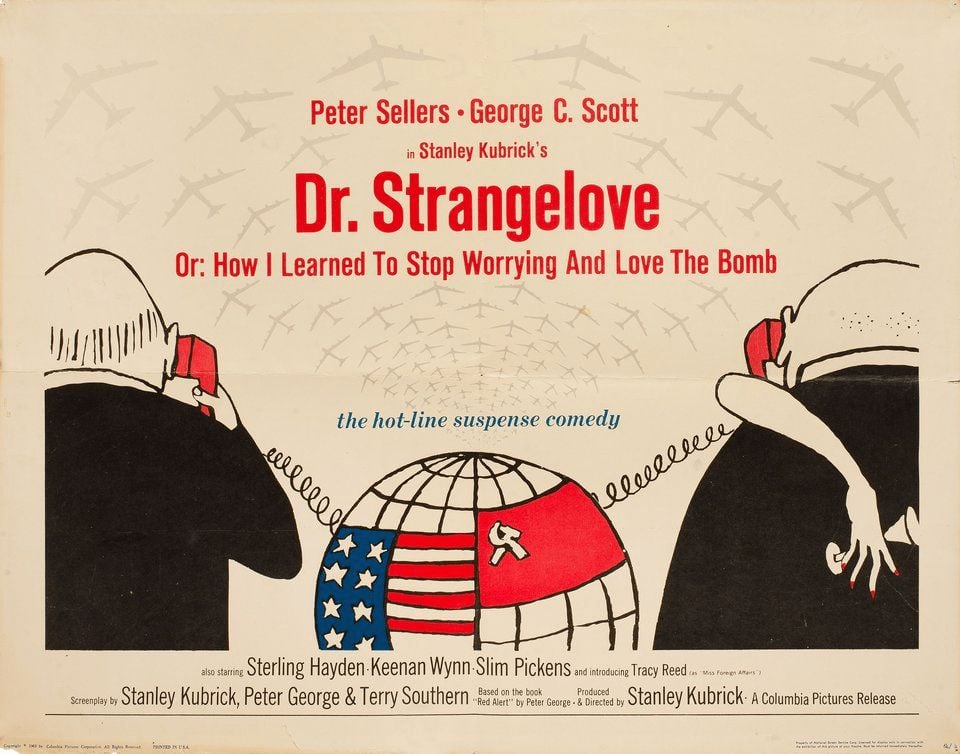As we reflect on the 60th anniversary of ‘Dr. Strangelove or: How I Learned to Stop Worrying and Love the Bomb’, it’s remarkable to consider the film’s enduring presence in our cultural consciousness. Released in 1964, directed by the visionary Stanley Kubrick, this satirical masterpiece has maintained its relevance, resonating with audiences and critics alike even as the Cold War era that it so deftly lampooned has receded into history.
Initial Reception Echoes Through Time
The film’s initial reception was a complex mix of admiration and controversy. Critics lauded Kubrick’s sharp wit and the film’s biting satire. As one might ponder, More than 20 years since the end of the Cold War, and nearly a half-century since the film was released, why is Stanley Kubrick’s seventh feature… still so lauded, so beloved, so vital?
Indeed, despite facing censorship and bans in some countries due to its critical portrayal of political leaders and sensitive subject matter, it became an instant classic, a testament to its powerful impact upon release.
A Reflection of Cold War Anxieties
The film not only captured but also mocked the pervasive fears of its time. The character Dr. Strangelove himself is an embodiment of these fears, satirizing them while capturing the era’s atmosphere. The apocalyptic anxiety it diagnosed and treated with mockery and gallows humour has hardly vanished
, suggesting that while the context has changed, the underlying human sentiments remain.
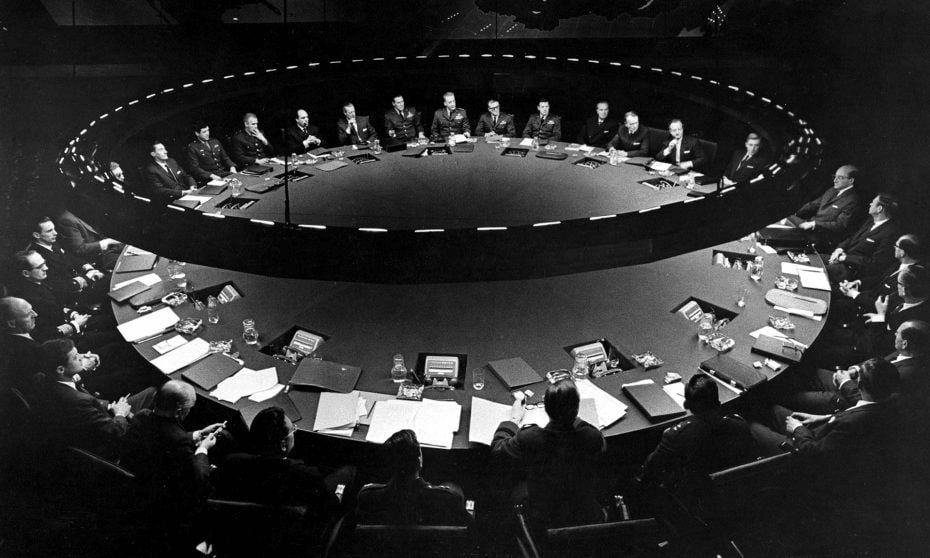

Kubrick’s Directorial Mastery
At the height of his craft, Kubrick directed ‘Dr. Strangelove’ with a fervent irony but empathetic touch. His work on this film is often referred to as a satirical masterpiece, reflecting his ability to blend caustic humor with deep human insight. Kubrick only got so far in regarding any sort of stop or lens. His idea was to shoot a Polaroid of the subject, show it to me and ask, ‘What do you think?’ I’d say, ‘It’s dreadful,’ and that’s how we got on.
This collaborative spirit with his cinematographer exemplifies Kubrick’s unique approach to filmmaking.
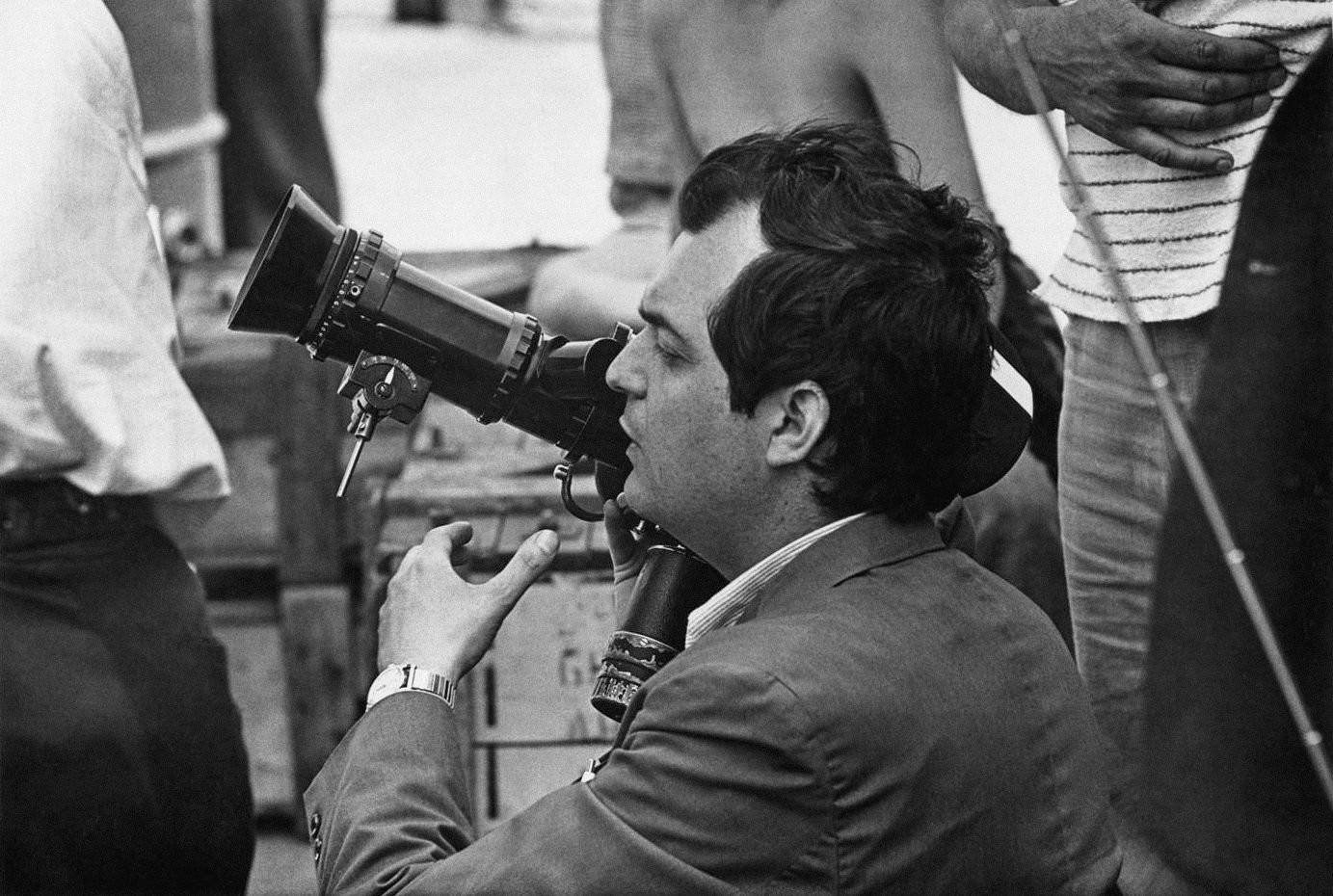

Innovative Cinematic Techniques
‘Dr. Strangelove’ broke new ground with its cinematic techniques. The use of source lighting and high-contrast illumination created an unforgettable visual aesthetic that was unique for its time. Additionally, the minimalist set design allowed for a focus on dialogue and tension, turning conventional filmmaking on its head.
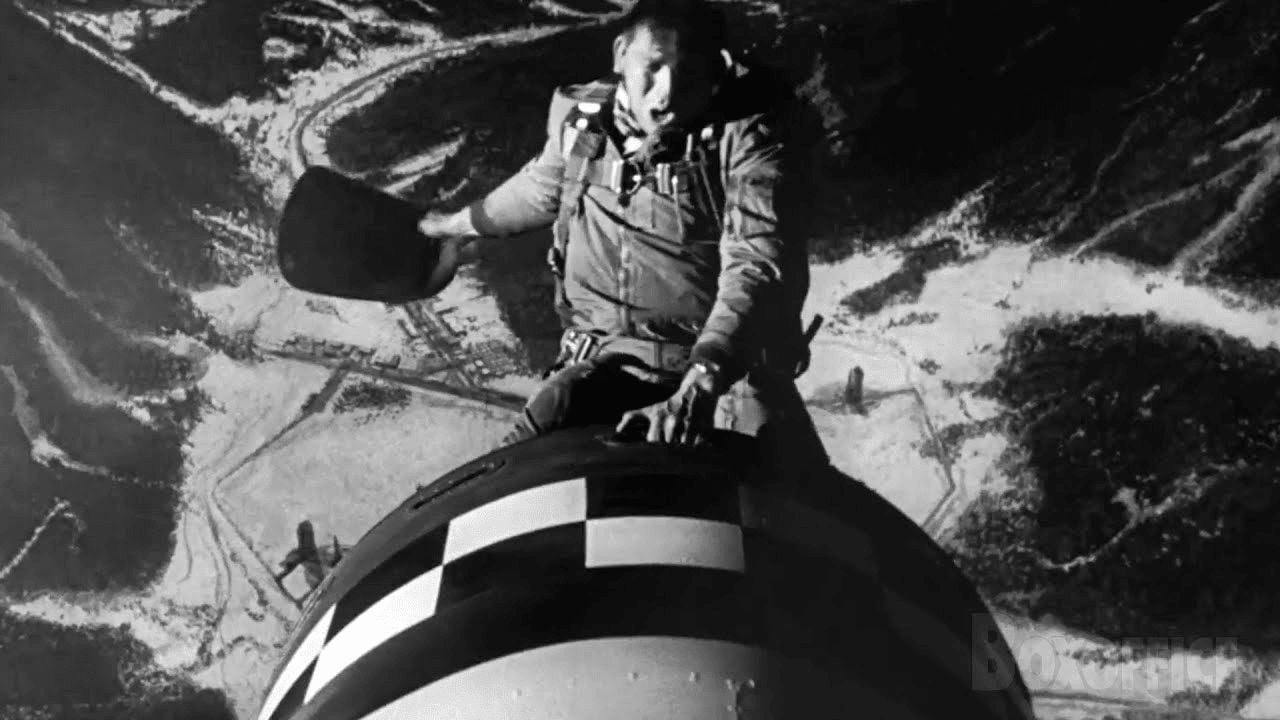

The Cultural Ripple Effect
The cultural impact of ‘Dr. Strangelove’ is undeniable; it has been referenced across various media over decades. An Americanized Nazi in love with death was the kind of joke made by the more knowing American schoolboys in the fifties and early sixties.
This brand of dark humor has become part of our cultural lexicon, influencing not just films but also television shows, books, and even everyday conversation.
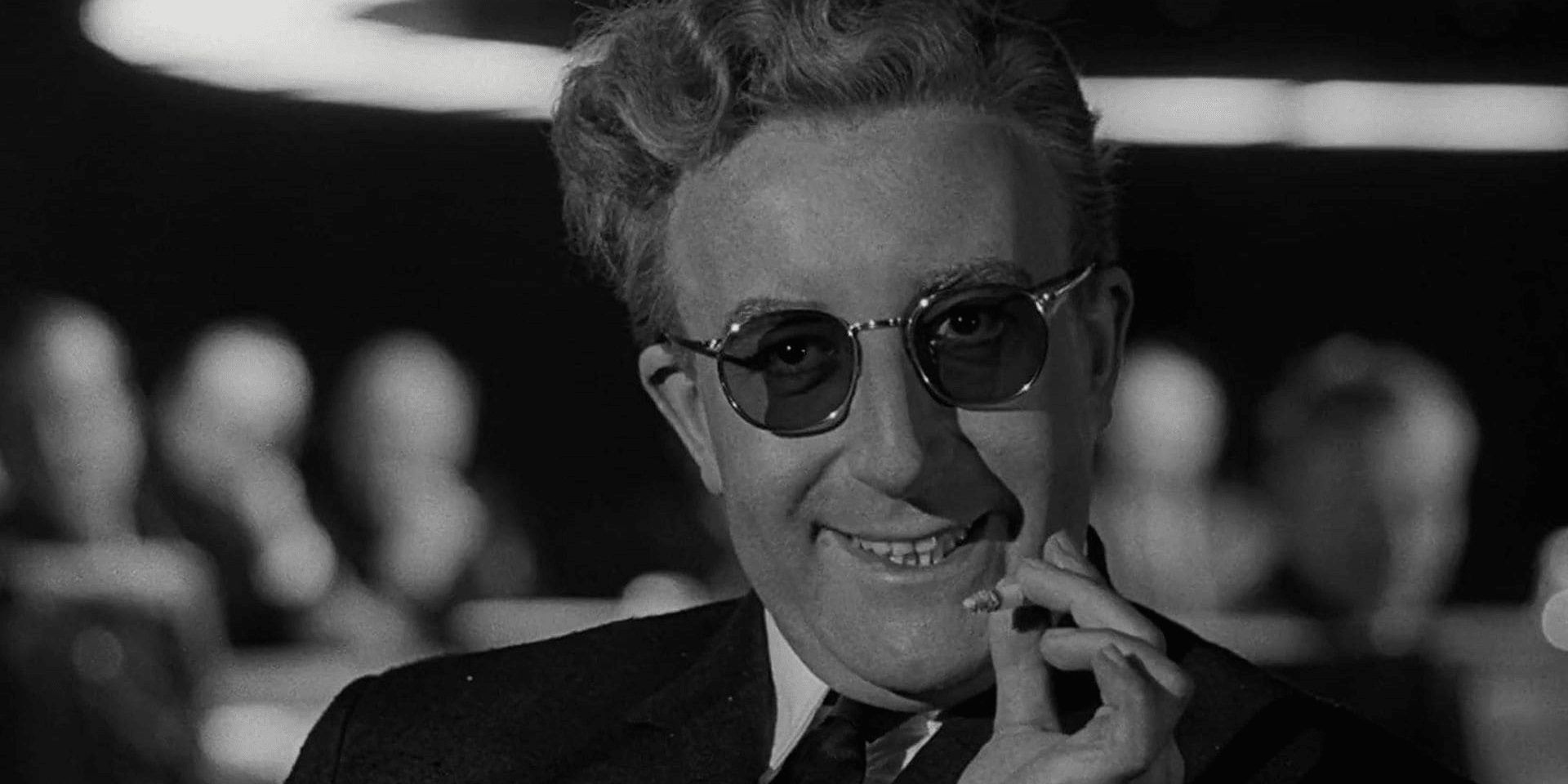

Still Politically Poignant
‘Dr. Strangelove’ remains as politically relevant today as it was during the Cold War. It serves as a purgative for our contemporary global politics fears; considering the worst the world had to offer and yet still finds the joie de vivre in it
. The film continues to challenge political sentiments through its unyielding satire.
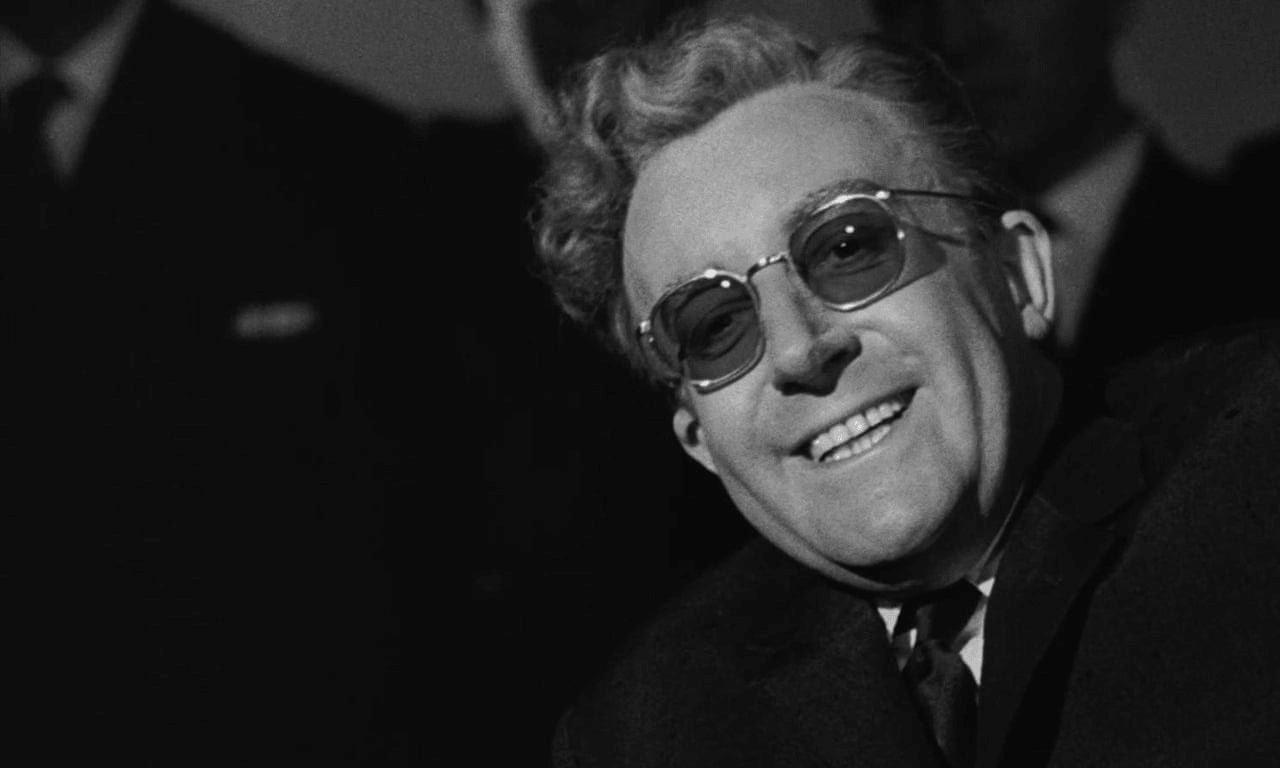

A Teaching Tool for Filmmakers
Kubrick’s influence on subsequent generations of filmmakers cannot be overstated. His work has inspired directors like Martin Scorsese and Steven Spielberg, who have taken cues from his storytelling techniques and thematic boldness.
Celebrating Six Decades of ‘Strangelove’
While specific anniversary screenings may not have been detailed here, the existence of scholarly work like Sean M. Maloney’s book suggests an ongoing discourse that includes retrospectives celebrating this cinematic gem’s legacy.

